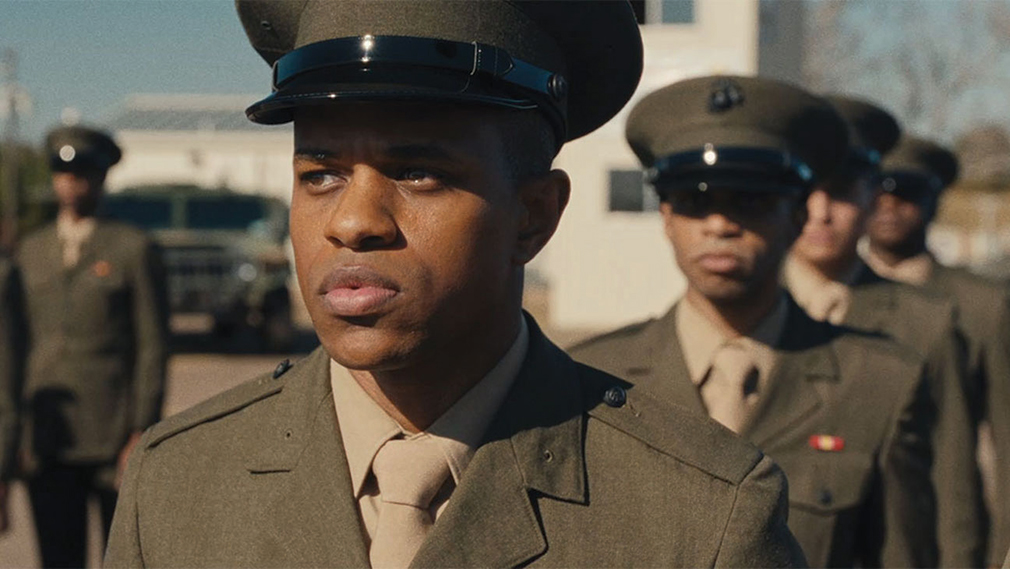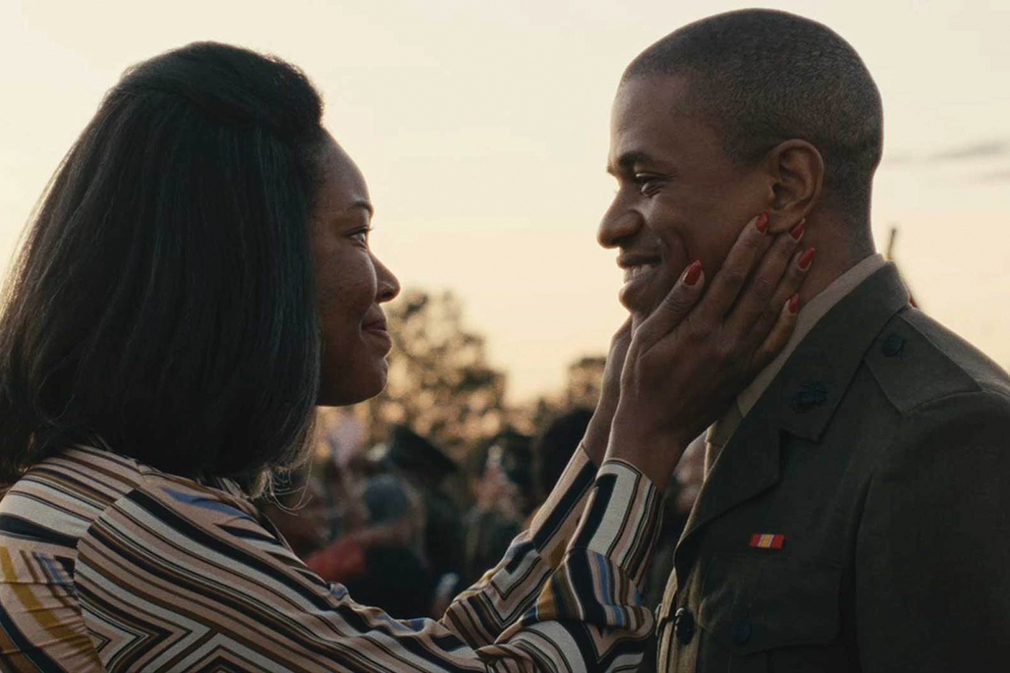An award-nominated producer behind the powerful and moving film The Inspection, Effie T. Brown has made a career telling stories of the marginalized—women, people of color and LGBTQ+. Brave in real life like she is in her filmmaking, Effie doesn’t shy away from truth—even when uncomfortable or challenging. I was fortunate to catch up with my former Loyola Marymount University classmate during the frenzy of awards season to discuss her leadership at Gamechanger Films and how service and mentorship play a meaningful role in her work.
First, congratulations on your Independent Spirit Award nomination for The Inspection. How did you come to produce Elegance Bratton’s semi-autobiographical story?
I took over Gamechanger in 2020, and I knew I had to find a movie that made our mark … one that amplified and exemplified what Gamechanger was about. People said I needed to check out these filmmakers—Elegance Bratton and a movie called The Inspection. This is going to sound odd, but you know when you fall in love, or when you buy a house and you’re like, “This is my home?” On the surface it’s a tough movie: gay kid, 16, mom kicked him out, homeless for 10 years, so he joined the Marines during Don’t Ask, Don’t Tell. But he told the story with joy, hope and realness. For me, it’s really important at Gamechanger that we are making films that are women, people of color, LGBTQ+ and people with disabilities forward—in front of the camera and behind the scenes.

One of the things I admire most about you, Effie, is your commitment to telling these kinds of stories. You’ve been doing this a long time. But how is the rest of Hollywood doing?
There are a few of us who have been doing this before diversity and inclusion were a thing. It was just how we naturally made movies, reflecting the world that we see. I’m also black and a woman. I’m in the Academy, and I’m excited about that. I’m on the right committees and in the right meetings. I have to say, everyone has really great intentions. Everyone really wants to do the right thing. However, they don’t want to be uncomfortable. People are resistant to change. But Hollywood is doing better. Slowly but surely …
When moved by your ethics and values, you’re not afraid to speak up and create space for others to be heard. Where does that intention come from, and do you see a bigger goal?
Real talk. I feel I’m a spiritual person. There’s a reason I’m doing what I’m doing, and there’s an intention behind it. I feel that every time I’ve gone against my intention—I’m going to call it God—or anytime I’ve deviated, there’s been hell to pay. I don’t give my parents—especially my mother—real credit. Truth-tellers. There was always speaking truth. That’s why I love those movies—the Westerns or kung fu movies. You have a code you follow, and as long as you follow the code, word is bond. I’ve never thought about not doing it. It’s a bit of a fighter spirit. Maybe that’s the Jersey in me.
In a recent Vanity Fair piece, you mentioned your involvement in forming a producers union. How do you hope this will impact your colleagues?
I don’t think people understand the role of a producer. They think it’s a rich person, like you might see in movies from the ’30s and ’40s. But that’s not what it looks like right now. Many of us are women. A lot of us are having to do other jobs in order to do this job. Our pay is the first thing we give up. As it stands right now, it’s unsustainable. What we do is a craft, but it’s been maligned by the past idea of a producer. I’m not rich, I’m not white, and I’m not a man. We’re also the only people on the set who don’t have health care. We want to protect our craft and to be able to protect the movie as well—to have someone experienced and in charge so we don’t have those terrible accidents on the set. There’s someone saying, “The buck stops here.”

What’s next for you and Gamechanger Films?
Right now we’re in the middle of doing a climate justice documentary. I just sold a true crime show to UCP, which is Universal. We’re also focusing on the nonprofit side of the company, where we’re able to offer labs, mentorship and stipends for people working on the for-profit movies. We pay for people to shadow and get the skills and learn what they need.
We were classmates at LMU in the early ’90s. You also participated in the fellowship program Project Involve. How did those early years affect the trajectory of your career?
I would be nowhere if it wasn’t for Project Involve, which is Film Independent [the nonprofit arts organization that produces the Spirit Awards]. I really do owe them everything. That’s still a home for me. I transferred off the board a year ago, and I’ve been active with them for decades. In college many of our classmates were super connected. And some of us were not connected at all. Project Involve hooked me up with a mentor, and that was Laurie Parker. I was able to executive produce a Jane Campion movie because of her. I was able to be the director of development for Tim Burton because of her. I got my first passport and went on my first international talent scout because of her. She shaped me to be the type of producer I am today. She said something when I was 18 that shook me to this day. She said, “As I’m helping you get up the ladder, and when you get to the top, you’re going to look to the left of you and the right of you and see there was room for more of us. I know you’re going to get there because you have it in you. But you have to do what I did for you and help bring someone else up.” I’ve been doing that ever since.
I think back to our time at LMU and the social changes we’ve seen over the last couple of decades. What would you tell a young woman of color today—about to graduate film school, ready to dive into the business?
It’s very specific in the time of now. One, I’m going to say it’s very difficult in the business for everyone. No matter what you look like, your gender, sexual orientation … this is a difficult business. Period. Two, I would tell them to be very sure of your “what” and “why.” What do you want to do in this business? And why do you want to do it? You’ve got to have those two things on point. Lastly, I’d tell them to learn how to write. That’s what’s changed in this business. Where once you could be just a producer, now it feels like everyone needs to be a hyphen. The writer-producer has a lot of agency over their career because you have the written word, and you’re also able to execute.










